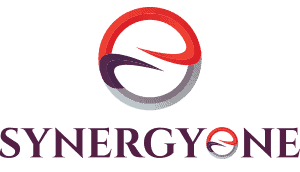Professionals
In today’s rapidly evolving job market, the ability to adapt to changing workforce demands is more crucial than ever. As technology advances, globalization expands, and societal expectations shift, the landscape of work is undergoing profound transformations. This article explores the dynamics of these changes and offers actionable strategies for professionals looking to stay ahead in their careers.
Understanding the Shift
The first step in adapting to changing workforce demands is understanding the nature of these shifts. Several key trends are reshaping the job market:
Technological Advancements: Automation, artificial intelligence (AI), and machine learning are changing the way work is done, creating new opportunities while rendering some roles obsolete.
Remote Work: The COVID-19 pandemic accelerated the adoption of remote work, a trend that is likely to persist, altering workplace cultures and expectations.
Emphasis on Soft Skills: As automation takes over routine tasks, skills like creativity, empathy, and adaptability are becoming more valuable.
Lifelong Learning: The half-life of job skills is decreasing, necessitating continuous learning and skill development.
How can the modern-day professional adapt to changing workforce demands?
Adapting to these changes requires a proactive and strategic approach. Here are some strategies to help you navigate the evolving workforce:
1. Embrace Lifelong Learning
The concept of learning doesn’t end with formal education. To remain relevant, professionals must commit to ongoing learning. This can take the form of online courses, professional certifications, workshops, or even self-directed study. Prioritizing learning not only enhances your current skill set but also prepares you for emerging roles and technologies.
2. Cultivate Soft Skills
While technical skills are important, soft skills are the glue that holds teams together and drives innovation. Skills such as leadership, communication, problem-solving, and emotional intelligence are increasingly in demand and can differentiate you in a competitive job market.
3. Stay Flexible and Open to Change
Flexibility is key in a changing job market. This might mean being open to changing roles, industries, or even geographical locations. It also means being adaptable in how you work, whether it’s in-office, remotely, or a hybrid of both.
4. Build a Strong Professional Network
Networking has always been important, but in a rapidly changing job landscape, it’s invaluable. A strong network can provide insights into industry trends, job opportunities, and offer support and mentorship. Engage with professional communities both online and in person.
5. Prioritize Digital Literacy
Regardless of your profession, digital literacy is becoming a fundamental requirement. Familiarity with digital tools, platforms, and working environments can enhance your productivity and open up new opportunities. For those in non-technical roles, understanding the basics of data analysis, digital marketing, or even coding can be beneficial.
6. Adopt a Growth Mindset
A growth mindset is the belief that abilities and intelligence can be developed through dedication and hard work, is essential for adaptation. It encourages resilience in the face of challenges and fosters a culture of feedback and continuous improvement.
Understanding the only constant in the workforce is change. By understanding the forces driving these changes and adopting strategies to adapt, professionals can not only survive but thrive in the modern job market. The future of work is dynamic and uncertain, but it is also full of opportunities for those prepared to seize them. Remember, adaptation is not about losing yourself in the tide of change but learning how to ride the waves to new horizons.


